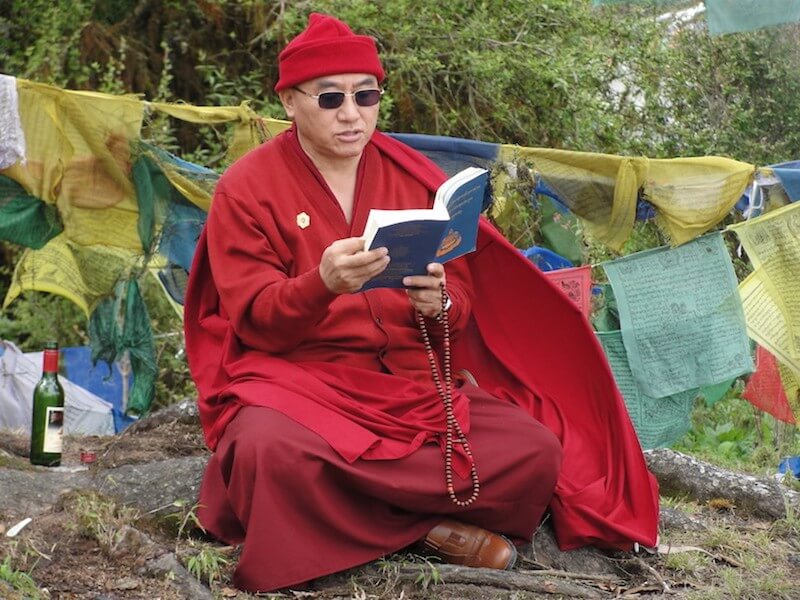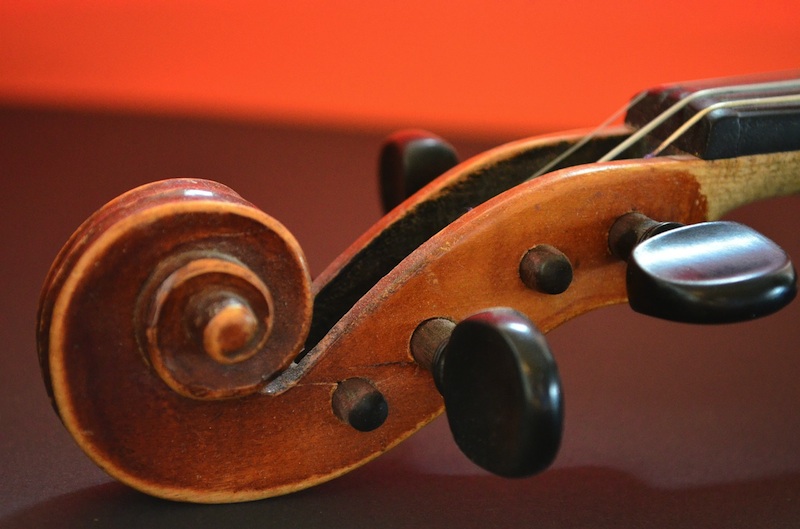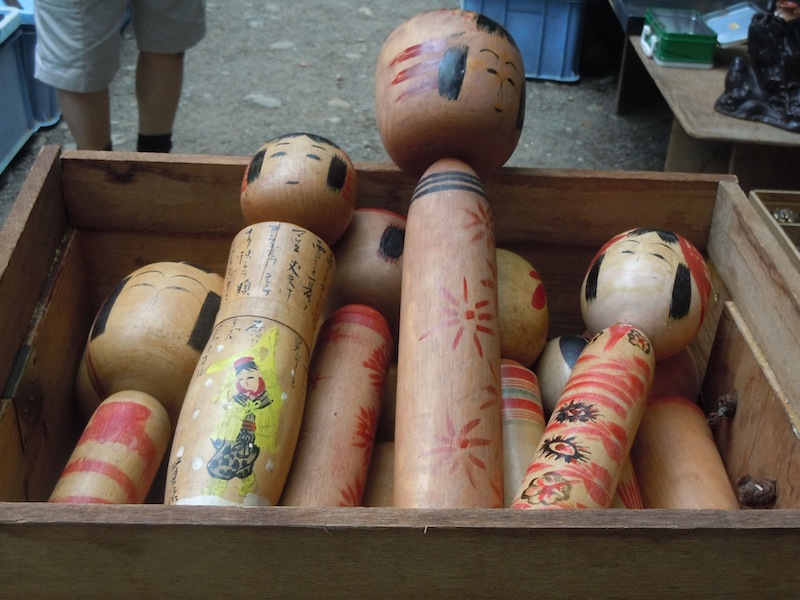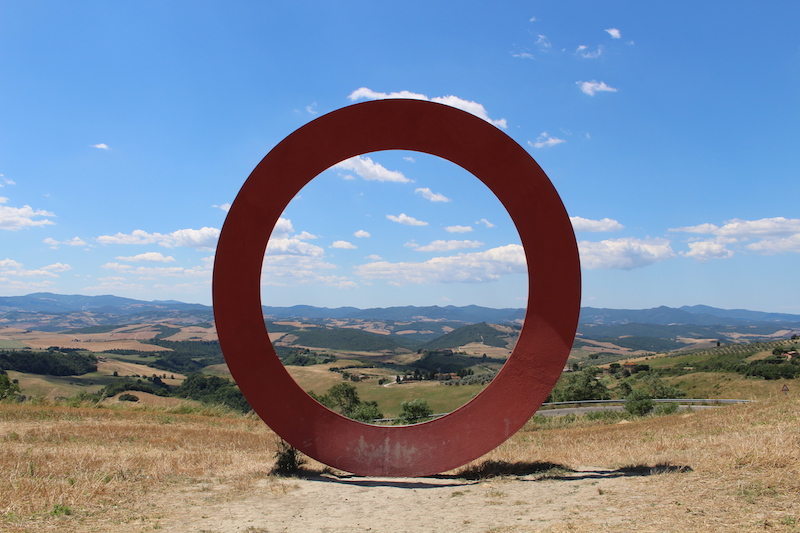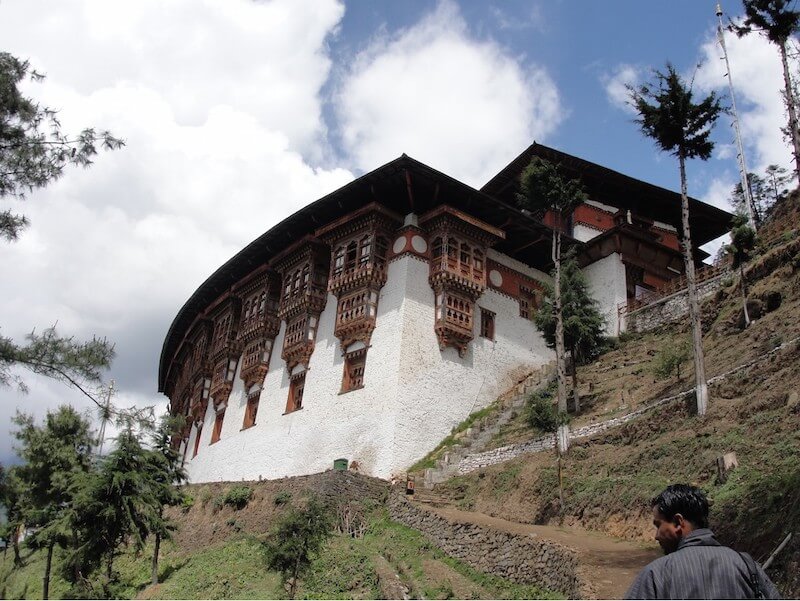
We wholeheartedly thank our dear friend Paola, who once more delights us with one of her discoveries. In this case, the Gross National Happiness in Bhutan. You can hear more about this fabulous country in the words of a North-American writer who moved there, in her podcast for Expatclic.
‘The dogs are auspicious,’ our guide Tashi said, looking at the two healthy-looking strays leading the way up the steep mountain path. It was cool and misty in the lichen-draped forest. Here and there we saw splashes of crimson rhododendrons.
Tashi, as always, was elegantly attired in a gho, a knee-length robe tied at the waist with a belt. Under it, he wore hiking books and Argyll socks. Apart from a few monks tripping up and down the track like mountain goats, we were alone, surrounded by birdsong.
We were on our way to the monastery of Tango Goemba, a few miles north of the Bhutanese capital, Thimpu. Two flashes, one yellow and one scarlet, darted across the path just in front of us.
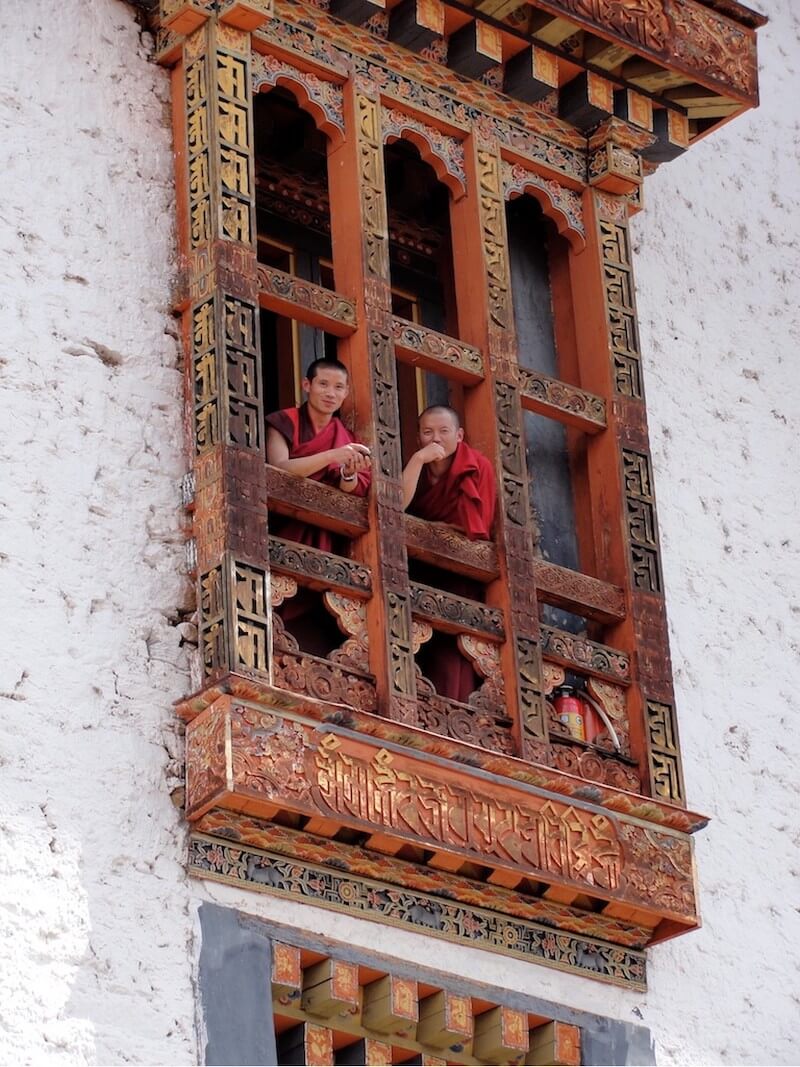 Tashi stopped. ‘Ssh.’ We followed his gaze, and spotted the two small birds on a branch just to our left. ‘Long-tailed minivets,’ he whispered. ‘The red one is the male. It’s auspicious to see them together.’
Tashi stopped. ‘Ssh.’ We followed his gaze, and spotted the two small birds on a branch just to our left. ‘Long-tailed minivets,’ he whispered. ‘The red one is the male. It’s auspicious to see them together.’
A lot of things are auspicious in Bhutan.
Until the 1960s, this landlocked country smaller than Switzerland existed in self-imposed isolation, with no currency, no towns to speak of, and no formal education outside monasteries. Today, Bhutan’s economy is based on Gross National Happiness, which measures the people’s general level of wellbeing, rather than GDP. Despite massive recent reforms, it remains a unique destination, steeped in religion and culture.
As we approached Tango Goemba, we saw a sign stuck on a brightly-painted wall: (REQUEST) PLEASE COME IN NATIONAL DRESS. INFORMAL DRESSED ARE NOT ALLOWED LA. It seems that the final la takes the edge off any instruction or statement, making it polite. Tashi, looking at my dirty jeans and sweatshirt, assured me that the sign only applied to locals. The dogs settled down to rest in front of the monastery entrance.
Perched at 8,500 feet above sea level, the monastery today houses the Tango University of Buddhist Studies, which is the most important centre for Buddhist learning in Bhutan.
Inside the main entrance we twirled a few prayer bells (clockwise, as instructed), took off our boots, and crept into the inner sanctum, and sat down cross-legged in a corner. A group of monks was chanting. On a raised dais, a young teenager sat solemnly in his robes.
‘He is the seventh reincarnation of the fourth desi of Bhutan’, Tashi explained. A desi is a spiritual leader. ‘His previous incarnation died in 1830. We are very lucky to see him.’
We stayed with the monks for a while, then made a small donation which secured us a couple of blessed strings to wear around our necks—we were determined never to lose the thread again. As we set off down the mountain, our friendly dogs rejoined us.
Tango Goemba was founded as a monastic school in the 12th century. The monastery that stands on the site today was built in the 15th century by Bhutan’s quirky and folkloric hero, Lama Drukpa Kunley, affectionately known by locals as the Divine Madman.
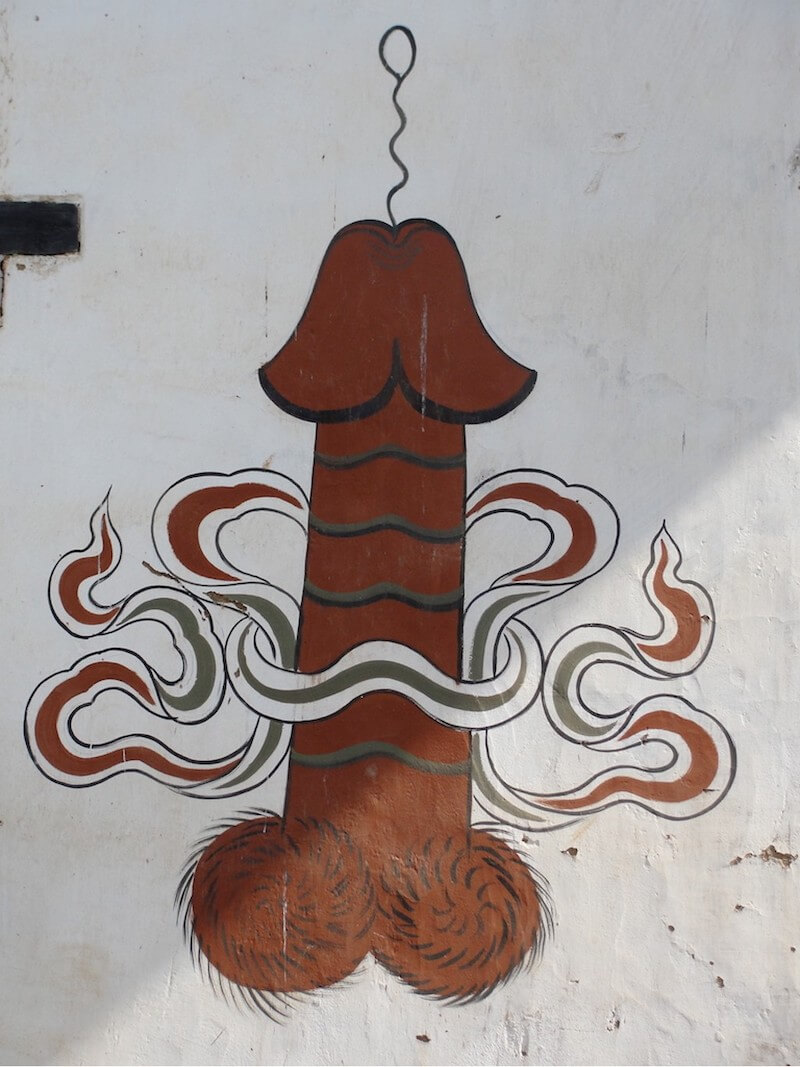 He was born in Tibet in the year of the wood-pig in the eighth cycle, which corresponds to our year 1455. After his father’s untimely death in a feud, he became disenchanted with the world, dedicated himself to religion, and became a monk. But that path, too, disillusioned him, so he became a mendicant, travelling extensively in Bhutan. He preached against hypocrisy and selfishness unconventionally, spending much of his time drinking, making music, and deflowering virgins. It is thanks to his sexual exploits that the outer walls of many houses throughout Bhutan are decorated with delicately painted frescoes of splendid phalluses, which simultaneously ward off the evil eye and enhance fertility.
He was born in Tibet in the year of the wood-pig in the eighth cycle, which corresponds to our year 1455. After his father’s untimely death in a feud, he became disenchanted with the world, dedicated himself to religion, and became a monk. But that path, too, disillusioned him, so he became a mendicant, travelling extensively in Bhutan. He preached against hypocrisy and selfishness unconventionally, spending much of his time drinking, making music, and deflowering virgins. It is thanks to his sexual exploits that the outer walls of many houses throughout Bhutan are decorated with delicately painted frescoes of splendid phalluses, which simultaneously ward off the evil eye and enhance fertility.
Many stories are told about the Divine Madman’s exploits. One day, a crowd his followers asked him to perform one of the magic feats for which he was renowned.
‘I will,’ said he, ‘but first you must bring me a goat and cow.’
They did as they were told. The animals were killed and roasted on a fire, and he sat down and ate them both, leaving only the bones. He then placed the goat’s skull on the cow’s bones, and said ‘Abracadabra’ (or the Bhutanese equivalent). The animal came to life, rose to its feet and headed for the pastures. And thus the Bhutanese national animal, the takin, was born. To this day this ugly creature has confused taxonomists, who have placed it in a category all of its own.
The day after our Tango Goemba trek, we visited Chimi Lhakhang, the Temple of Fertility, in the Punakha Valley, three hours from Thimpu. It was built in the Divine Madman’s honour by his cousin in 1499. The cousin was grateful that the holy man had subdued a demoness in nearby Dochu La with his ‘magic thunderbolt of wisdom’. Infertile couples come to the temple from all over Bhutan, as do families with young babies, to receive blessings.
A monk blessed us, tapping our heads with two ten-inch plastic phalluses. Since we’re not too bothered about fertility at this point in our lives, we wished for health for our grandson and any grandchildren we may have in the future. Just as we left the temple, I received a text message from our daughter: ‘Your beloved grandson has just walked his first two steps!’
Definitely the Divine Madman’s work.
We strolled back to the car, grateful for the Madman and for all the holy people scattered over the world’s mountains, praying for the victory of good over evil.

